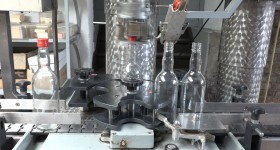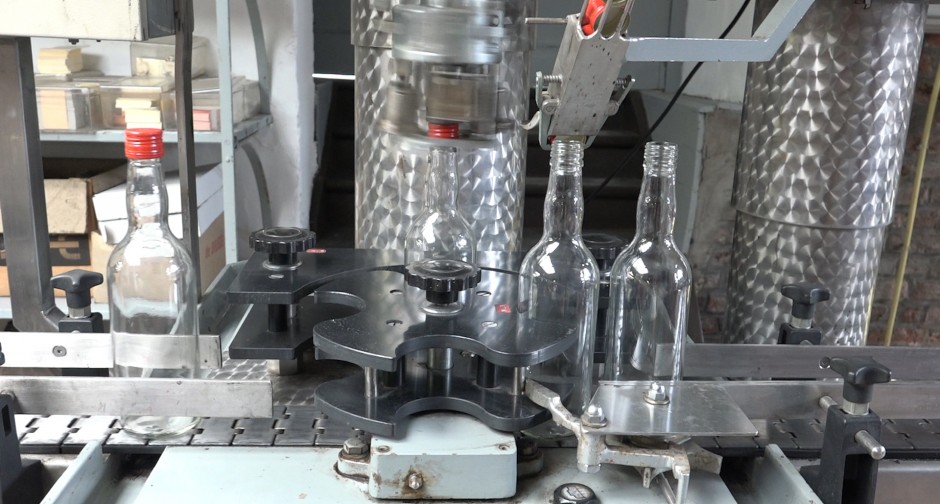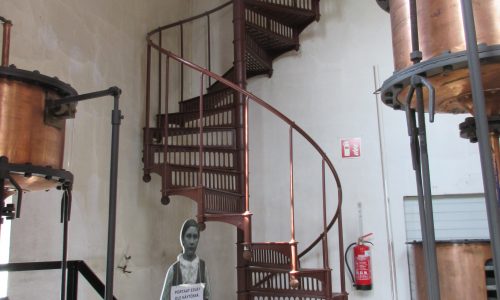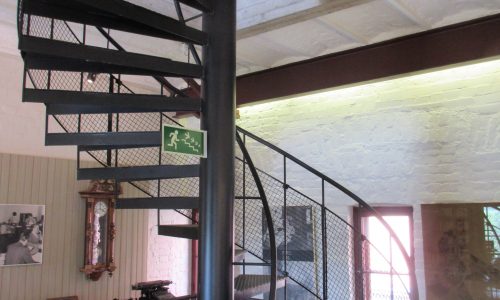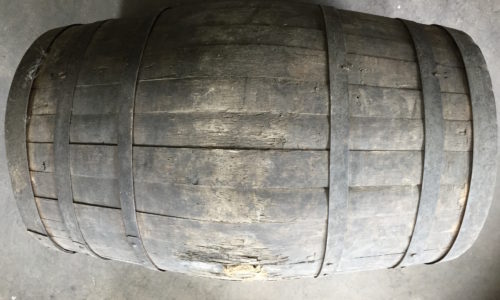Capping machine in action
Production line, capping machine in action
The Fovel distillery, founded in 1864 by Joseph Fovel, is the only one still in operation in the Brussels region. This family distillery produces various jenevers and spirits: Brussels Manneken-Pis jenever (36% vol), Hasselt jenever (36% vol), Schaerbeek morello cherry jenever (18% vol), Grand-Place orange liqueur (40% vol), kirsch cherry (35% vol), triple sec liqueur (35% vol), fine Fovel (37% vol), among others. More than 100,000 bottles are produced at the distillery every year.
Jenever is a strong alcohol (about 20% by volume if flavoured with fruit, 40% if pure) made from grain alcohol (malted barley, wheat, rye, and sometimes oats) flavoured with the help of juniper berries. This spirit is a speciality of Belgium. Some people also consider it to be the forerunner of gin.
Production of ‘extracts’: 96% pure alcohol is blended with water and extracts, to create the taste (such as juniper berries for gin). Eighty litres of extracts produce 30,000 litres of spirits.
Thierry Fovel, the owner, is the fifth generation of this family business.
In 1914, the director buried the copper stills to prevent them from falling into the hands of the Germans. They were disinterred after the war and are still in use. In 1940, the firm hid the motors.
In 1975, twelve people worked at the distillery. There are three today, including just one on the production side. The layout of the distillery hasn’t changed since 1920. Before the distillery was set up, the buildings seem to have been used as a vinegar factory.
Customers are generally private individuals. There are about one hundred of them in Brussels and in Belgium as a whole.
The cherries used in the process come from the director’s properties. The morello cherries, being smaller, are more difficult to harvest.
Specs:
Filesize:
Duration:
Channels:
2.8 MB
16 s
2 (Stereo)
Bit rate:
Bit depth:
1419 kb/s
16 bit
Recorded on May 26, 2015
Distillery
Brussels, BELGIUM
Creative Commons License

